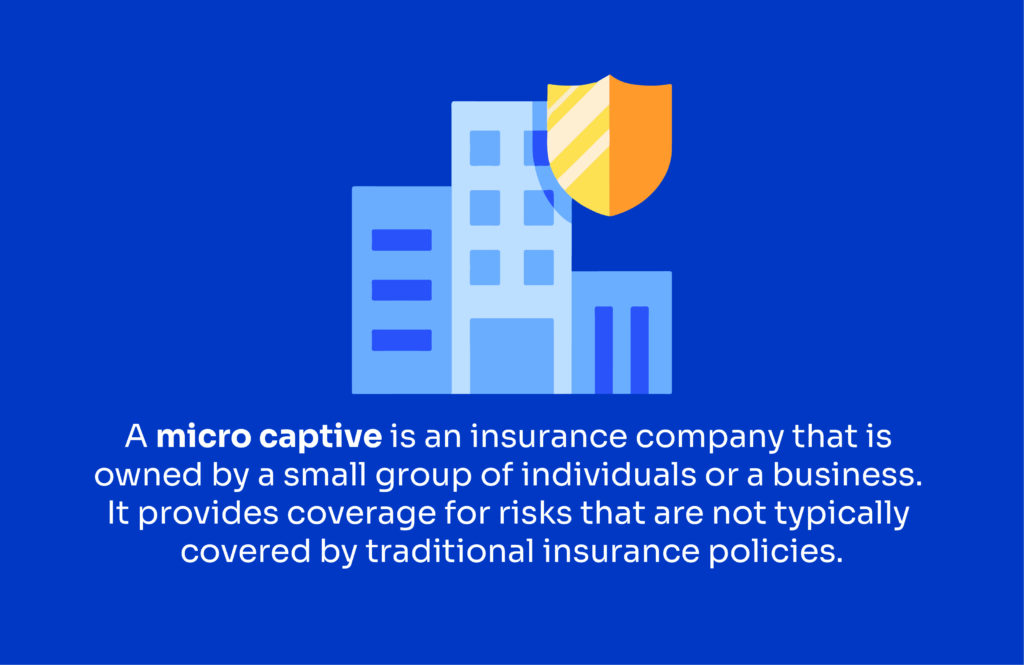Unlocking the Power of a Micro Captive: Minimize Taxes and Protect Your Small Business

Small business owners are always looking for ways to minimize their tax burden and protect their assets. One option that is gaining popularity is the 831(b) micro captive insurance company. In this Article, we will explain what a micro captive is, how it works, its benefits, and how it can be used.
What is a 831(b) Micro Captive?

A micro captive is an insurance company that is owned by a small group of individuals or a business. It provides coverage for risks that are not typically covered by traditional insurance policies. The term “831(b)” refers to a section of the Internal Revenue Code that allows small captive insurance companies to elect to be taxed only on their investment income, rather than their premium income.
How Does a Micro Captive Work?
A micro captive works by providing insurance coverage to its owners. The owners pay premiums to the captive, which uses the funds to pay for claims that are covered under the policies. The captive invests the remaining funds to generate additional income. If the captive’s losses exceed its premiums, the owners may be required to contribute additional funds to cover the losses.
Benefits of Using a Micro Captive
There are several benefits to using a micro captive. First, it allows small business owners to control their insurance costs and provide coverage for risks that are not covered by traditional insurance policies. Second, it provides tax advantages by allowing the captive to be taxed only on its investment income, rather than its premium income. Third, it can provide asset protection by segregating assets from the operating company and protecting them from creditors.
How is a Micro Captive Used?
A micro captive can be used to provide coverage for a wide range of risks, such as product liability, professional liability, and property damage. It can also be used to cover risks that are unique to a particular business. For example, a business that operates in a high-risk industry may use a micro captive to provide coverage for losses that are not covered by traditional insurance policies.
Advantages Over Other Elections
There are several advantages to using a micro captive over other tax elections. For example, a micro captive can provide greater flexibility in designing insurance policies that meet the specific needs of a business. It can also provide greater control over the claims process, which can result in faster and more efficient claims handling. Finally, it can provide tax advantages that are not available with other tax elections.
Conclusion
If you are a small business owner looking for ways to minimize your tax burden and protect your assets, a 831(b) micro captive may be an option worth exploring. It provides flexibility, control, and tax advantages that are not available with other tax elections. TruRE is a company that specializes in micro captives and can provide more information on how they work and whether they are right for your business. Don’t wait – request a conversation with TruRE today and unlock the power of a micro captive for your business.